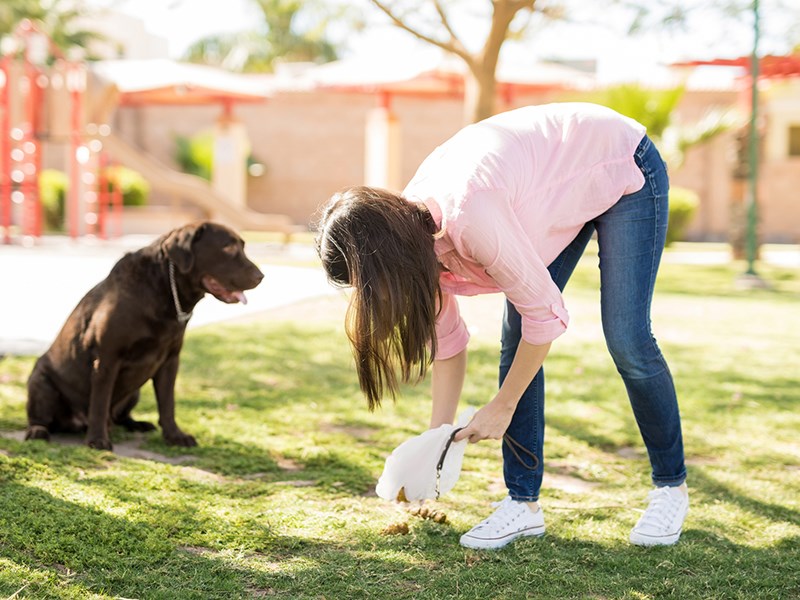Even cute pets poop.
The inglorious part of pet ownership involves managing our pet’s waste, and while many products on the market claim to help mitigate Fido’s environmental impact, there are still very few that go the distance.
Perhaps the best reminder, when it comes to dog waste, is that compostable bags are not the “green” choice they may first appear to be. Few compostable bags break down into food for the soil outside of a high-heat composting facility and biodegradable bags may only break down into smaller pieces of plastic.
Worse, when waste is wrapped up and sent to the landfill, it not only fails to biodegrade in the oxygen-deprived surrounds, but also generates potent greenhouse gases. And, be careful about the temptation to hide your dog’s evidence under forest debris. When near waterways, animal feces can allow pathogens to go where they can cause harm to animals, sea life and humans alike.
So, what to do about the doo-doo?
Fortunately, there are some concepts brewing in the realm of earth-friendly, pet-waste management. Beyond kitty litter made from newspaper or wood shavings, conversations are beginning around cost-effective backyard solutions.
One such idea is the Green Cone, a Canadian-made, cone-shaped digester that is buried two feet into the ground, with the remaining three feet above. The double-walled durable plastic cone captures heat from the sun and allows microorganisms from the soil to aid in waste digestion.
Unlike a traditional backyard composter, this digester is not meant for harvesting, but it can still act as food for non-edible plants around it. Ideally placed in the direct sun in the middle of a garden space, the Green Cone can handle pet waste.
Animal waste is not recommended for backyard composters because temperature levels high enough to kill pathogens cannot be guaranteed. Instead, in a digester, about 90 per cent of waste breaks down into water with the help of a microorganism activator and naturally occurring organisms in the soil. Because of this reduction in volume, it can handle about a gallon of waste every one or two days in the summer or every two to three days in the winter.
Beyond pet waste, the digester is capable of handling cooked and uncooked food waste, including meat, fish, bones, dairy products, vegetables and fruit. Still, these should be carefully considered as they can be an attractant to wildlife if they do not break down rapidly enough to mitigate odour.
Although not available in stores, Let’s Talk Trash has ordered Green Cones for Powell River through Powell River Regional District and reservations for cones are still available. Email [email protected] or call 604.485.2260, extension 304, with questions or for Green Cone preorders.
Let’s Talk Trash is Powell River Regional District’s waste-reduction education program.



